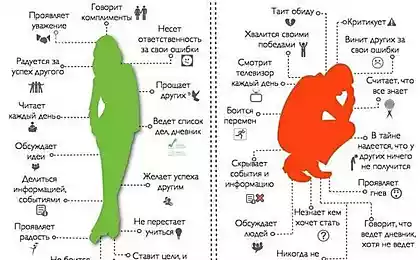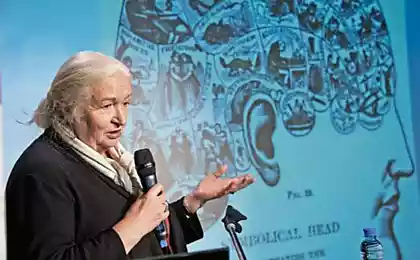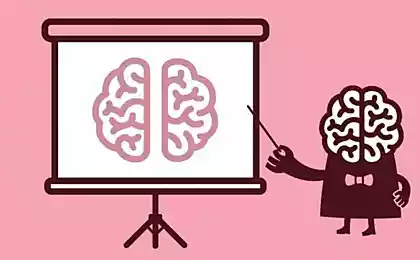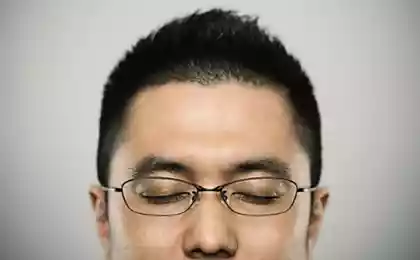393
Awake did not understand: due to lack of sleep the brain can take friends for enemies
Lack of sleep is known to reduce working capacity, concentration and memory. But he has other, much more unusual effects. A new study by scientists from the University of California at Berkeley shows that lack of sleep dulls our ability to understand human facial expressions.
If, instead of a sincere smile you seem only unhappy faces, you probably do not have enough sleep.
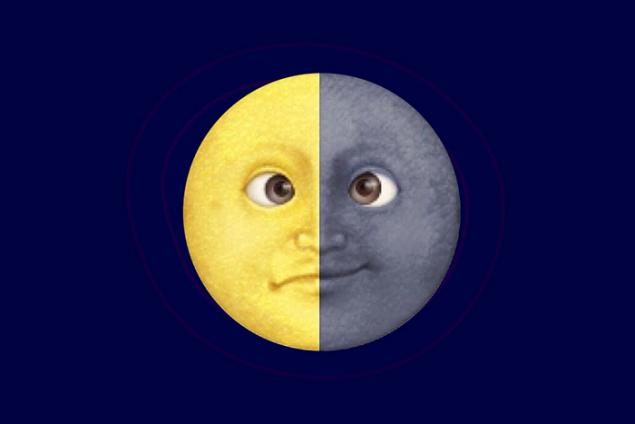
"The ability to recognize the emotions of others directly affects your desire to communicate with the person and, in turn, the human desire to communicate with you" — says study author Matthew Walker, a Professor of psychology and neurology at the University of California at Berkeley. Abstracts of the study were published July 15 in the Journal Neurology.
"This study is of particular value to many, given that two thirds of the population in developed countries suffer from lack of sleep," adds Walker. "Indeed, the results do not Bode well for thousands of sleepy," says the study's lead author Andrea Goldstein-Piekarski, a researcher at Stanford University, which started research as a graduate student at the University of California at Berkeley.
"We have studied the effects of sleepless nights the students-nighters, nurses ambulance, military in a combat zone and police at the end of shifts," says Andrea. During the experiment, 18 healthy adults examined the images with 70 different expressions of human faces (from friendly to threatening); first, after a good night's sleep, and then after days without sleep. The researchers scanned the brains of participants and measured their heart rate while watching a series.
Brain scans during the experiment — conducted using apparatus a functional MRI revealed that the brain is suffering from lack of sleep, can not distinguish between the threatening and friendly faces, especially in emotionally sensitive areas of the brain, for example, in the anterior insular lobe of the brain and the anterior cingulate cortex.
Should also add that heart rate sleep-deprived participants did not meet the normal reaction to threat or friendly faces. In addition, the researchers found that the disruption in neural communication between the brain and the heart, which is usually responsible for transmitting signals of danger. "It turns out that lack of sleep removes the body from the brain, and you can no longer trust your heart," says Walker. As a consequence, the participants of the experiment considered a neutral and even friendly emotions are dangerous because of their own lack of sleep.
"They have ruined our emotional Rorschach test, says Walker. — Lack of sleep causes us to throw away the rose-colored glasses, causing a heightened sense of threat. This explains why people who sleep less, are less social and more lonely."
To finish still, on a positive note, researchers recorded the electrical activity of the brain during a good night's sleep and found that REM sleep (dream sleep) correlated with the ability of participants to correctly read facial expressions. Earlier studies of Walker also found that the phase of short sleep helps to overcome stress and soothes bad memories.
"The better the sleep quality, the more the brain and body recognize facial expressions and human emotions, says Walker. Dreaming helps us to cope with our emotions. This study confirms once again the importance of good sleep for people".published
P. S. And remember, only by changing their consumption — together we change the world! ©
Source: theoryandpractice.ru
If, instead of a sincere smile you seem only unhappy faces, you probably do not have enough sleep.

"The ability to recognize the emotions of others directly affects your desire to communicate with the person and, in turn, the human desire to communicate with you" — says study author Matthew Walker, a Professor of psychology and neurology at the University of California at Berkeley. Abstracts of the study were published July 15 in the Journal Neurology.
"This study is of particular value to many, given that two thirds of the population in developed countries suffer from lack of sleep," adds Walker. "Indeed, the results do not Bode well for thousands of sleepy," says the study's lead author Andrea Goldstein-Piekarski, a researcher at Stanford University, which started research as a graduate student at the University of California at Berkeley.
"We have studied the effects of sleepless nights the students-nighters, nurses ambulance, military in a combat zone and police at the end of shifts," says Andrea. During the experiment, 18 healthy adults examined the images with 70 different expressions of human faces (from friendly to threatening); first, after a good night's sleep, and then after days without sleep. The researchers scanned the brains of participants and measured their heart rate while watching a series.
Brain scans during the experiment — conducted using apparatus a functional MRI revealed that the brain is suffering from lack of sleep, can not distinguish between the threatening and friendly faces, especially in emotionally sensitive areas of the brain, for example, in the anterior insular lobe of the brain and the anterior cingulate cortex.
Should also add that heart rate sleep-deprived participants did not meet the normal reaction to threat or friendly faces. In addition, the researchers found that the disruption in neural communication between the brain and the heart, which is usually responsible for transmitting signals of danger. "It turns out that lack of sleep removes the body from the brain, and you can no longer trust your heart," says Walker. As a consequence, the participants of the experiment considered a neutral and even friendly emotions are dangerous because of their own lack of sleep.
"They have ruined our emotional Rorschach test, says Walker. — Lack of sleep causes us to throw away the rose-colored glasses, causing a heightened sense of threat. This explains why people who sleep less, are less social and more lonely."
To finish still, on a positive note, researchers recorded the electrical activity of the brain during a good night's sleep and found that REM sleep (dream sleep) correlated with the ability of participants to correctly read facial expressions. Earlier studies of Walker also found that the phase of short sleep helps to overcome stress and soothes bad memories.
"The better the sleep quality, the more the brain and body recognize facial expressions and human emotions, says Walker. Dreaming helps us to cope with our emotions. This study confirms once again the importance of good sleep for people".published
P. S. And remember, only by changing their consumption — together we change the world! ©
Source: theoryandpractice.ru










